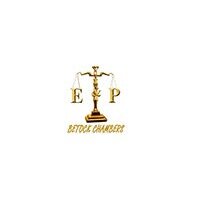Best Hiring & Firing Lawyers in Freetown
Share your needs with us, get contacted by law firms.
Free. Takes 2 min.
List of the best lawyers in Freetown, Sierra Leone
About Hiring & Firing Law in Freetown, Sierra Leone
Hiring and firing practices in Freetown, Sierra Leone, are governed by employment laws designed to protect both employers and employees. These laws ensure fair hiring practices and provide guidelines for the dismissal process, safeguarding employee rights while allowing employers to manage their workforce effectively. Understanding these laws is crucial for both parties to maintain a lawful and productive work environment.
Why You May Need a Lawyer
Legal advice can be essential in several hiring and firing scenarios. For employers, lawyers can help in drafting contracts, ensuring compliance with labor laws, and defending against wrongful termination claims. Employees might seek legal assistance when facing unfair dismissal, discrimination, or contractual disputes. A lawyer can provide clarity on legal entitlements and navigate the complexities of employment law.
Local Laws Overview
In Freetown, employment relationships are regulated by the National Social Security and Insurance Trust (NASSIT) laws, the Employers and Employed Act, and associated labor regulations. Key aspects include:
- Employment contracts must be clear on terms and conditions.
- Equal opportunity for all citizens regardless of gender, ethnicity, or belief.
- Procedures for lawful termination include providing notice and valid reasons.
- Severance pay eligibility and calculation based on length of service.
- Protections against unfair dismissal and recourse mechanisms for aggrieved employees.
Frequently Asked Questions
What is a lawful reason for firing an employee?
Lawful reasons can include poor performance, misconduct, redundancy, or any situation that makes continuation of employment unreasonable.
Is an employment contract mandatory in Freetown?
Yes, documented contracts outlining key employment terms are necessary and advisable to prevent disputes.
What is the notice period for termination?
Notice periods vary depending on the employment contract and length of service, but they are generally mandated by labor laws to be reasonable.
Can an employee be dismissed during a probation period?
Yes, employees can be dismissed during probation as long as the dismissal does not contravene any specified terms within that period.
What protections exist for wrongfully terminated employees?
Employees can report and seek remedy through the Ministry of Labor and Employment, and potentially court action for compensatory damages.
When is severance pay required?
Severance is typically required for dismissals due to redundancy or after serving a specific duration, as stipulated by employment laws.
How can discrimination in hiring be addressed?
Complaints can be lodged with relevant labor authorities where investigations may lead to sanctions for discriminatory practices.
Are employers required to provide training to employees?
Though not legally mandatory, employers are encouraged to provide training to enhance skills and productivity, ensuring competitiveness and compliance.
What are my rights as a part-time employee?
Part-time employees should receive pro-rata benefits aligned with full-time counterparts in similar roles, barring any justified exceptions.
How can disputes be resolved outside of court?
Alternative dispute resolution methods, such as arbitration and mediation, provide an amicable way to settle employment disputes.
Additional Resources
For further guidance, these resources can be extremely helpful:
- Ministry of Labour and Social Security: Oversees labor practices and policies.
- National Social Security and Insurance Trust (NASSIT): Provides information on social security and employment benefits.
- Legal Aid Board, Sierra Leone: Offers legal assistance to those unable to afford private lawyers.
- Civil Society Organizations: Provide advocacy and advice on employment rights and fairness.
Next Steps
If you find yourself needing legal advice or representation in hiring and firing matters, consider the following steps:
- Consult with a qualified labor lawyer to assess your situation and explore legal options.
- Gather necessary documents, such as employment contracts, correspondence, and any relevant workplace policies.
- Contact local authorities or legal aid organizations for guidance or support services available to employees and employers.
By taking these steps, you ensure a better understanding of your rights and obligations, navigating the legal landscape in hiring and firing more effectively.
Lawzana helps you find the best lawyers and law firms in Freetown through a curated and pre-screened list of qualified legal professionals. Our platform offers rankings and detailed profiles of attorneys and law firms, allowing you to compare based on practice areas, including Hiring & Firing, experience, and client feedback.
Each profile includes a description of the firm's areas of practice, client reviews, team members and partners, year of establishment, spoken languages, office locations, contact information, social media presence, and any published articles or resources. Most firms on our platform speak English and are experienced in both local and international legal matters.
Get a quote from top-rated law firms in Freetown, Sierra Leone — quickly, securely, and without unnecessary hassle.
Disclaimer:
The information provided on this page is for general informational purposes only and does not constitute legal advice. While we strive to ensure the accuracy and relevance of the content, legal information may change over time, and interpretations of the law can vary. You should always consult with a qualified legal professional for advice specific to your situation.
We disclaim all liability for actions taken or not taken based on the content of this page. If you believe any information is incorrect or outdated, please contact us, and we will review and update it where appropriate.











